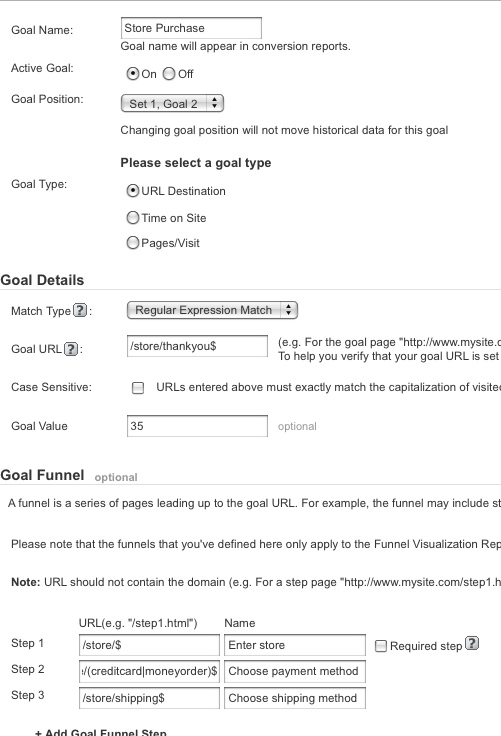RegEx Ebook Answers ‑ For Google Analytics

A couple months ago, I published a RegEx for Google Analytics ebook. You can download the ebook or just “page through it” online. The last page was a quiz, and I promised the answers — here they are:
Question 1: Write a Regular Expression that matches both dialog and dialogue.
Answer: Since you should always keep your RegEx simple, my best answer would be dialog|dialogue . Slightly more elegant but more complicated would be dialog(ue)? I’ll just invite others here (and for every other answer) to submit alternative ideas.
Question 2: Write a RegEx that matchest two request URLs: /secondfolder/?pid=123 and /secondfolder/?pid=567 (and cannot match other URLs)
Answer: ^/secondfolder/?pid=(123|567)$ — note, I chose to put a dollar sign at the end so that the regex stopped matching if anything came after the three digits at the end of the target strings.
Question 3: Write a single Regular Expression that matches all your subdomains (and doesn’t match anything else). Make it as short as possible, since Google Analytics sometimes limits the number of characters you can use in a filter. Your subdomains are subdomain1.mysite.com, subdomain2.mysite.com, subdomain3.mysite.com, subdomain4.mysite.com, www.mysite.com, store.mysite.com and blog.mysite.com
Answer: There are lots of ways to do this. My choice would be: (subdomain[1-4]|www|store|blog).mysite.com$
Question 4: Write a funnel and goal that includes three steps for the funnel and the final goal step (four steps in all), using Regular Expressions. Notice that there are two ways to achieve Step 2.
- /store/
- /store/creditcard or store/moneyorder
- /store/shipping
- /store/thankyou
Answer: This one requires a picture:

The RegEx for Step 2 is hard to read in the picture above, it is /store/(creditcard|moneyorder)$ . Notice that I added a dollar sign at the end of all the expressions above. Without context, it is hard to know which ones are mandatory, but we know for sure that the dollar sign in Step 1 is mandatory. That dollar sign is required, not because of regular expressions, but because of the strange way funnels sometimes work. For more information on that one, you might want to read this excellent post on goals and funnels that Jonathan Weber of LunaMetrics wrote.
Finally, let me end with a great quote! (I didn’t ask permission to use her name, so I will just use an initial.) This reader wrote me yesterday to ask, where were the answers? Here is part of what she wrote:
Seriously, your ebook was so full of win. I’ve been trying to wrap my mind around RegEx and have been using the basics in GA for a while. But I really expanded my understanding b/c your explanations were so plain English and applicable to GA. A lot of tutorials I saw online weren’t written for GA and were written by propellerheads, I suspect. ?
Having worked for a graphics publishing company, I also REALLY appreciated the layout, font treatments, and graphics. A world-class job all the way around. — A
— Robbin


